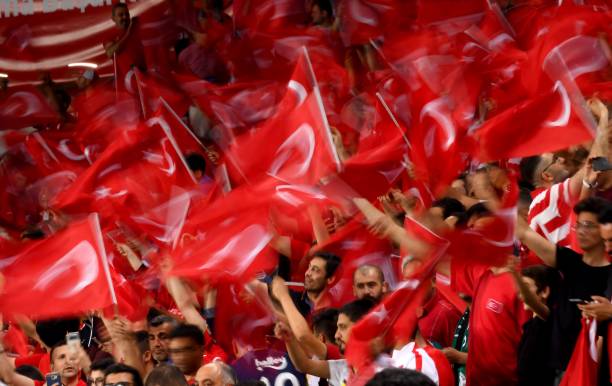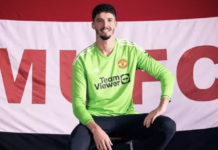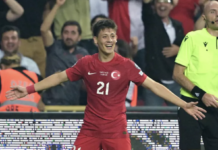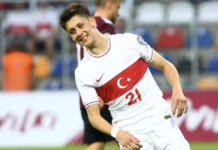
Pot 1
Belgium (Group B)
A truly easy ride. Belgium wrote history in a flawless qualification campaign with 30 points out of 30, 40 goals scored and only three conceded. When Roberto Martínez walked with his five-year-old daughter Lula to school the day after Belgium had thrashed Cyprus 6-1, she asked: “How many goals did you make last night?” When he answered “six”, she said “oh”, as if she thought it wasn’t good enough. Belgium and their fans have been spoilt over the past few years – the heavy defeat in the Nations League against Switzerland serving as the only wake-up call. With three of the best players in the prime of their career – Eden Hazard, Kevin De Bruyne and Romelu Lukaku – and an ageing defence this feels like the last chance for the Golden Generation to claim a trophy. When you talk to the players the lost semi-final against France at the World Cup in Russia always gets a mention. They want to put things straight. The squad has mentally grown and De Bruyne has become a leader, someone who really controls the game and the tempo. Lukaku scores whenever he wants and Hazard has added a little to his game. The Red Devils have not been really tested since the World Cup, but go into the tournament as one of the favourites.Martínez says: “This is going to be the most difficult tournament to win. I will stay true to my principles. After the Euros the media will welcome me as George Clooney, or treat me as Quasimodo.” As Belgium has no hosting stadium, they will play their group games in Russia and Denmark.
How they qualified First in Group I Preferred system 3-4-3. Star players Eden Hazard (Real Madrid), Kevin De Bruyne (Manchester City) One to watch Romelu Lukaku (Internazionale) Manager Roberto Martínez Odds 6-1
Kristof Terreur, HLN
England (hosts, Group D)
After the carefree run to the semi-finals of the 2018 World Cup expectations will be higher next summer. It will feel like a home tournament at times for England, who will play all their group matches at Wembley, and they will start as one of the favourites after dominating a weak qualification group. The possibilities feel endless for Gareth Southgate’s young, exciting side and plenty of England’s rivals will be casting envious glances at their attacking riches. Harry Kane, Raheem Sterling and Marcus Rashford form one of the best forward lines in the world, with competition provided by Tammy Abraham, Callum Hudson-Odoi and Jadon Sancho, and there are goals from midfield as well. Yet Southgate will be wary of the hype. The manager is yet to settle on his starting XI and issues in defence and midfield have been exposed during defeats by the Czech Republic in qualification and the Netherlands in the Nations League. As ever England have much to prove against the very best.
How they qualified Top of Group A Preferred system 4-3-3 Star player Harry Kane (Tottenham) One to watch Jadon Sancho (Borussia Dortmund) Manager Gareth Southgate Odds 9-2
Jacob Steinberg, The Guardian
Germany (hosts, Group F)
After the team crashed out of the 2018 World Cup at the group stage, an overhaul was inevitable. Former key players such as Jérôme Boateng, Mats Hummels and Thomas Müller were told that – for age or performance reasons – they were surplus to requirements, while Mesut Özil retired in the wake of the debate triggered by his photo with Turkey’s president, Recep Erdoğan. The remaining stalwarts are the goalkeeper Manuel Neuer and playmaker Toni Kroos. Add to that Marco Reus or Ilkay Gündogan, who have plenty of experience but have not yet been able to win any trophies with the national team due to injuries. The bulk of the side, however, is made up of players born between 1994 and 1997, foremost among them the Bayern striker Serge Gnabry, whose record on the international stage is astonishing: 13 goals in as many games. The national coach, Joachim Löw, who surprised many observers by not stepping down after the World Cup, thinks his team are too young to be one of the tournament favourites, especially since two crucial players will be sidelined for some time to come: the defensive linchpin Niklas Süle and the winger Leroy Sané. Then again, life as a dark horse can be quite enjoyable.
How they qualified Winner Group C Preferred system 4-2-3-1 Star player Toni Kroos (Real Madrid) One to watch Serge Gnabry (Bayern Munich) Manager Joachim Löw Odds 8-1
Jens Kirschneck, 11 Freunde
Italy (hosts, Group E)
The Renaissance returns. Roberto Mancini took over as Italy’s coach in May 2018, six months after the elimination against Sweden in a cruel, ugly World Cup qualifying play-off. Mancini chose to rebuild the team on new pillars: attacking football, technical players, youth. Against all odds, everything worked immediately. Italy won every single match in Group J, scoring 3.7 goals per game and conceding only four. Italy now play with a 4-3-3 formation based on pressing, possession and speed. The team may lack structure (Marco Verratti, Lorenzo Insigne, Nicolò Barella and Jorginho are not heavyweight champions) but seem ready to impress Europe with a new generation of talents such as Nicolò Zaniolo – who was called up before he had even made his Serie A debut – Gianluigi Donnarumma, Stefano Sensi, Sandro Tonali and Federico Chiesa. “We’re not far off the best European teams,” said Mancini. He could be damn right.
How they qualified First in Group J Preferred system 4-3-3 Star Player Marco Verratti (PSG) One to watch Nicolò Zaniolo (Roma) Manager Roberto Mancini Odds Odds 12-1
Luca Bianchin, La Gazzetta dello Sport
Spain (hosts, Group E)
At his presentation upon returning as Spain manager, Luis Enrique was asked if they could win the Euros. The question was laced with pessimism, an awareness that the generation that won it all has almost all gone and that this is a team that have now gone three tournaments in a row without winning a knockout game, but Luis Enrique didn’t hesitate. “Yes,” he said, placing them on the same level as Germany, the Netherlands, Italy, France and, in fact, just about any country he could think of. (Indeed, the only big nation he did not mention was England). Spain’s qualification had shown that, he said: the selección were unbeaten. It was a qualification finally clinched by his assistant Robert Moreno, who took over when Luis Enrique was forced to step aside because his nine-year-old daughter was seriously ill and subsequently died. His return hasn’t been smooth – Moreno has gone, accused of disloyalty by Luis Enrique – but he is back now. And while he admits that Spain don’t have an eleven (“I would love us to”), and much as this generation certainly isn’t that one, they do have players – and good ones.
How they qualified Winners , Group F Preferred system 4-3-3 Star player Sergio Ramos One to watch Ansu Fati Manager Luis Enrique Odds 8-1
Sid Lowe, The Guardian
Ukraine
“We came here [to the Ukrainian National squad] three years ago and changed everything fundamentally. Guys liked the idea of these changes so we are keeping doing it.” So said Andriy Shevchenko after the victory over Portugal in qualifying that sent Ukraine to Euro 2020. It was the country’s best ever qualifying campaign – eight games, six wins, two draws and no defeats with only four goals against. This was firstly down to the goalkeeper’s Andriy Pyatov ability but the defensive line is quite strong with both young players such as Mykola Matvienko, Vitaliy Mykolenko and Eduard Sobol and the experienced Serhiy Kryvtsov and Oleksandr Karavaev. Shevchenko has a very competitive midfield with Taras Stepanenko in a defensive role and Marlos, Ruslan Malinovskiy, Oleksandr Zinchenko, Viktor Tsyhankov and Andriy Yarmolenko for attack. The main strength of these players is footballing intelligence and creativity. Malinovskiy is perfect at free-kicks and corners, while Zinchenko acts as a nuclear engine for the team. The best forward, Roman Yaremchuk, can conjure a goal even during poor performances. The power of the squad is in mutual understanding and hard work both in attack and defence.
How they qualified Winners of Group B Preferred system 4-5-1 or 4-3-3 Star player Oleksandr Zinchenko (Manchester City) One to watch Roman Yaremchuk (KAA Gent) Manager Andriy Shevchenko Odds 80-1
Olha Zorina, FootballHub
Pot 2
Croatia
The captain Luka Modric still reigns supreme in midfield and with far more consistency than on club level. Internazionale’s Marcelo Brozovic has grown into a fine defensive midfielder of the type this side lacked for years. The squad has been infused with fresh blood: Everton “flop” Nikola Vlasic, now at CSKA Moscow, was a hero of the qualifiers, scoring important goals and adding to the team’s variety, while Dinamo Zagreb’s Bruno Petkovic surpassed expectations to fill Mario Mandzukic’s shoes, already scoring five times in eight appearances since his debut in March. On the minus side, options for full-back positions are still very much open and those have been weak spots particularly since Sime Vrsaljko missed the entire campaign with injury. Ivan Rakitic missed half of it as he contemplated his fading status at Barcelona; the manager, Zlatko Dalic, has been very patient over his withdrawals, but Rakitic may have lost his starting place to Vlasic. Croatia hit a few bumps on the road to the Euros, but will again be a force to be reckoned with come the tournament.
How they qualified Winners of Group E Preferred system 4-3-3 or 4-2-3-1 Star player Luka Modric (Real Madrid) One to watch Nikola Vlasic (CSKA Moscow) Manager Zlatko Dalic Odds 25-1
Aleksandar Holiga, Telesport
France
Simply because they had a bad day at the office in June in Turkey where they suffered their only defeat of the year (0-2), the 2018 world champions and 2016 Euro finalists did not make the top seeding pot. No big deal, though. As uninspired in attack as they appeared from time to time, France have reached their eighth Euro finals in a row rather comfortably and qualified untroubled by a raft of major injuries (Hugo Lloris, Lucas Hernandez, Paul Pogba, N’golo Kanté and Kylian Mbappé, who all started the Moscow final, missed half of the games or more). Consequently Didier Deschamps had to use 29 players, among them a few newcomers such as Clément Lenglet, Léo Dubois, Ferland Mendy, Tanguy Ndombelé and Jonathan Ikoné, but his strongest possible line-up looks very similar to the one that won the World Cup, with only Lenglet having edged out Samuel Umtiti to partner Rafaël Varane in central defence as the major change. The team rely heavily on set pieces (which accounts for 40% of their goals), tournament experience and defensive nous. They boast quick attacking transitions and extra speed up front with Mbappé and Kingsley Coman. And at 28 Antoine Griezmann remains their undisputed technical leader and main inspiration. Anything but a place in the last four next summer would be considered a failure.
How they qualified First in Group H Preferred system 4-4-2 Star player Antoine Griezmann (Barcelona) One to watch Kingsley Coman (Bayern Munich) Manager Didier Deschamps (since July 2012). Odds 4-1
Patrick Urbini, France Football
Netherlands
Have missed out on two major tournaments in a row but the last time that happened the Oranje followed it up by reaching two World Cup finals (1974 and 1978) and then the European Championship triumph in 1988. So other countries have been warned but they are already aware of the progress of this team after two great years under Ronald Koeman. We have seen young players such as Frenkie de Jong and Matthijs de Ligt burst onto the world scene, the coming of age of Memphis Depay and Daley Blind, as well as Georginio Wijnaldum and Virgil van Dijk, winning the Champions League with Liverpool.
This team reached the final of the Nations League in 2019 leaving behind France and Germany in the group phase and England before losing the final against Portugal. In Euro 2020 qualifying they had to deal with Germany along a surprisingly resilient Northern Ireland side. They reached the finals in style after a German-style” win, coming from 2-0 behind to win 4-2 in Hamburg against their arch rivals. There are some weak areas in the current squad but talented players keeps popping up like fresh flowers in the spring. In addition to the players mentioned above we may well see the best of these next summer: Donny van de Beek, Donyell Malen, Calvin Stengs, Myron Boadu, Steven Bergwijn, Mohamed Ihattaren and Teun Koopmeiners to mention a few.
How they qualified Second in Group C behind Germany Preferred system 4-2-1-3 Star Player Virgil van Dijk One to watch Frenkie de Jong Manager Ronald Koeman
Bart Vlietstra, de Volkskrant
Poland
Since the draw in Dublin it was quite clear that Poland would be the favourites to qualify from a fairly easy group, and they delivered. Jerzy Brzeczek replaced Adam Nawalka after their failure at the World Cup and there were plenty of question marks over whether he was a suitable man for the job. Their Nations League campaign and friendlies prior to the Euro 2020 qualifiers only added to those doubts but fans need not have worried. Robert Lewandowski wasn’t in the best of form (unlike now) but he guided the national team to a fairly easy first place. Poland reached 25 points from their 10 matches – the same record with which they qualified for the World Cup under Nawalka. Brzeczek has done exactly what the Polish FA chairman, Zbigniew Boniek, wanted him to do – win the group but also rebuild and refresh the squad with some new faces. The 20-year-old Sebastian Szymanski can be a first-choice winger for years. Krystian Bielik proved that his fine performances during the European Under-21 Championship in Italy were not a fluke. And there was also Krzysztof Piatek, a revelation in the 2018-19 season in Serie A, who scored important goals, like the one against Austria in Vienna. Poland can be a dark horses during the finals (like they were four years ago when they almost eliminated Portugal, the eventual winners). But Lewandowski has to be at the top of his form. His contribution in his three big tournaments? Only two goals.
How they qualified First in Group G Preferred system 4-2-3-1 Star player: Ro
Tomasz Włodarczyk, Przegląd Sportowy
Russia (hosts, Group B)
Russia’s team has almost completely changed in the 18 months since they opened their World Cup campaign against Saudi Arabia. Three players from that starting XI retired from international duty (Igor Akinfeev, Sergei Ignashevich and Aleksandr Samedov), two have been out this year because of injuries (Alan Dzagoev and Yuri Gazinskiy) and two more lost their places in the squad (Fyodor Smolov and Ilya Kutepov). Mário Fernandes, Aleksandr Golovin, Roman Zobnin and the ageless Yuri Zhirkov are the only players who have survived. Back in the spring of 2018 the manager, Stanislav Cherchesov, had relied on 3-5-2, but right before the tournament switched to 4-2-3-1 – and it worked. Throughout the Euro 2020 qualifying campaign Russia played with this winning formation with the exception of the game in Belgium when they chose a defensive 5-3-2, losing 1-3. The key character in this team is certainly Zenit Saint Petersburg’s striker Artem Dzyuba. Fans love the captain for both his human qualities (sincerity and charisma) and footballing ones (efficiency and stability), although a bunch of supporters still haven’t forgiven him a transfer from Spartak Moscow to hated Zenit in 2015. Dzyuba is the most prolific striker in the team (scoring nine goals in 10 qualifiers). Golovin is another star man, who made a breakthrough at the World Cup, then moved from CSKA Moscow to Monaco and quickly became a key player for them. The goalkeeping spot is Russia’s weak link. The team are struggling without the retiredAkinfeev: his back-ups Andrey Lunyov (Zenit) and Guilherme (Lokomotiv Moscow) have not impressed so it’s still unclear who will be the No 1 next summer.
How they qualified Second in Group I Preferred system 4-2-3-1 Star player Aleksandr Golovin (Monaco) One to watch Zelimkhan Bakaev (Spartak Moscow) Manager Stanislav Cherchesov Odds 66-1
Gosha Chernov, Sport-Express
Switzerland
Switzerland didn’t play well in qualification for Euro 2020, but ended up topping their group thanks to Denmark’s failure to beat the Republic of Ireland. A big problem was Xherdan Shaqiri’s absence – the Liverpool man didn’t play a single minute of qualification because of injury. So the Swiss team were short of creativity but still had enough quality to qualify. Another problem is Granit Xhaka’s situation at Arsenal. So Switzerland have to solve the problems surrounding Xhaka and Shaqiri before the Euros start. There is also uncertainty over the future of the national coach, Vladimir Petkovic, whose contract ends after the tournament. The media have been very critical of him because of his poor communication over a string of issues. But the team are talented and the key players such as Xhaka, Shaqiri, Yann Sommer, Ricardo Rodríguez, Fabian Schär or Haris Seferovic have played together for a long time. So after three consecutive eliminations in the round of 16 in major tournaments (against Argentina at the 2014 World Cup, Poland at Euro 2016 and Sweden in last year’s World Cup) the goal is the quarter-finals this time.
How they qualified First in Group D Preferred system 3-5-1-1 Star player Granit Xhaka (Arsenal) One to watch Ruben Vargas (Augsburg) Manager Vladimir Petkovic Odds 66-1
Andreas Böni, Blick
Pot 3
Austria
What was meant to be a walk in the park in qualifying turned into a rollercoaster ride. When the draw for Group G was announced, Austria had every reason to be happy. Besides the top seeds Poland, Franco Foda’s side were the other clear favourites to get throughahead of Slovenia, Latvia, North Macedonia and Israel. But defeat in the first fixture, against Poland at home, was followed by a disastrous 2-4 defeat in Israel and pressure began to mount on the team and especially on Foda. But Marco Arnautovic and co started delivering some better performances, and crucial wins against Slovenia and North Macedonia followed. The pressure slowly started to ease when the team showed what they are capable of. Nevertheless Foda was criticised for stubbornly sticking to his system and not getting everything out of a squad which is undoubtedly capable of very good football. After they secured the second spot behind Poland, Austria went to Latvia for the last game and the home team secured their first win of the group stage, which left a bitter aftertaste for Foda and his team.
How they qualified Second in Group G Preferred system 4-5-1 Star players David Alaba (Bayern Munich) and Marko Arnautovic (SPL Shanghai) One to watch Marcel Sabitzer (RB Leipzig) Manager Franco Foda Odds 100-1
Andreas Hagenauer, Der Standard
Denmark (hosts, Group B)
It’s been an odd qualification campaign for Denmark. The team scored goals like never before and didn’t lose any of eight group outings but still only just managed to secure their place at Euro 2020. That said Denmark fully deserved their ninth appearance at the European Championship finals, which they won so memorably in 1992. This national team won’t repeat that fairytale but will be hard opponents for even the biggest names in Europe. Denmark have gone 34 matches without defeat since October 2016 due to a high level of stability, strong discipline and few injuries – not enough to always satisfy fans and media who have demanded more adventurousness and entertainment, much to the annoyance of Åge Hareide, the Norwegian manager, who has asked the public to appreciate the impressive results of such a small footballing country. He is very proud of a team that seldom make mistakes and have a world-class keeper in Kasper Schmeichel. As a negative counterweight Christian Eriksen is surrounded by much uncertainty. The midfielder wanted to leave Tottenham in the summer but found no buyer and since then his performances have been poor. He needs to become a regular at Spurs or find a new club in January in order to be ready for Euro 2020 – without him at his best Denmark stand almost no chance of progressing from their group.
How they qualified Second in Group D Preferred system 4-3-3 Star player Kasper Schmeichel (Leicester) One to watch Yussuf Poulsen (RB Leipzig) Manager Åge Hareide Odds 80-1
Thomas Møller Kristensen, Jyllands-Posten
Portugal
Portugal will be at Euro 2020 defending the unprecedented title won in France four years earlier, with Eder’s historic and incredible goal. Qualification was guaranteed only in the last game, with a modest victory in Luxembourg, but the Seleção still had the play-offs as plan B, thanks to their victory in the first Nations League in the summer. The performances were not always convincing, butwith Fernando Santos in charge, Portugal have achieved good results and, of course, won two trophies. Cristiano Ronaldo is set to be the first player in history to play in five European Championship finals, and now with Bernardo Silva taking on a more relevant role (and players such as João Félix, Bruno Fernandes and Rúben Neves), Portugal can dream big again.
How they qualified Second in Group B Preferred system 4-4-2 (or 4-3-3) Star player Cristiano Ronaldo (Juventus) One to watch João Félix (Atlético Madrid) Manager Fernando Santos Odds 10-1
Nuno Travassos, Maisfutebol
Sweden
By Swedish standards reaching the 2018 World Cup quarter-final was a success, and Sweden’s best campaign since coming third in 1994. The coach, Janne Andersson, has continued to build on that success with most of the team intact – Ola Toivonen is the only high-profile player to have retired from international football since. After the World Cup Sweden won their Uefa Nations League group ahead of Turkey and Russia, and in the qualifiers for Euro 2020 Sweden lost only once, away to Spain (3-0), and finished second in their group. Playing without the forwards Toivonen and Zlatan Ibrahimovic, who quit the national team after the 2016 Euros, has not really been a problem. The Mainz forward Robin Quaison has shouldered some of the goalscoring responsibilities and was Sweden’s top scorer in qualifying with five goals. Sweden’s game is built upon a well-organised collective. Apart perhaps from Victor Lindelöf (Manchester United) and Emil Forsberg (RB Leipzig) Sweden do not really have any superstars, although Dejan Kulusevski (Parma) and Alexander Isak (Real Sociedad) are highly regarded for the future. The preferred starting line-up contains two players from the domestic league, Allsvenskan – Andreas Granqvist (Helsingborgs IF) and Sebastian Larsson (AIK) with the rest of the squad comprising players from teams and leagues just below the absolute top level – for example Sampdoria, Krasnodar and Werder Bremen.
How they qualified Second in Group F Preferred system 4-4-2 Star player Victor Lindelöf One to watch Kristoffer Olsson (Krasnodar) Manager Janne Andersson Odds 100-1
Ludwig Billengren and Sven Bertil Liljegren, fotbollskanalen.se
Turkey
To be completely frank when Group H was first drawn I did not expect Turkey to qualify – Şenol Güneş inherited a side in complete disarray. But they surprised just about everybody and even managed to take four points from the world champions France. Turkey booked a place in Euro 2020 with a game to spare, something never achieved before. After years of defensive trauma it is strange to see Turkey so strong at the back. Çağlar Söyüncü is the standout name and his heroic performances were instrumental in the side keeping eight clean sheets and conceding only three goals in qualifying. But there is intense competition to be his centre-back partner with Juventus’s Merih Demiral, Fortuna Düsseldorf’s Kaan Ayhan, Ozan Kabak of Schalke and Roma’s Mert Çetin all competing for a spot this summer. And they are all young, the oldest being the 25-year-old Ayhan. The midfield do not exactly play aesthetically pleasing football – compared to Turkey sides of the past – but they are industrious and protect the back four. There are not a lot of options up front with an ageing Burak Yilmaz and Cenk Tosun, who is currently out of favour at Everton, in the forward line. The main attacking and creative spark will be the Roma winger Cengiz Ünder but there is a lot of young talent coming through and Güneş is not afraid to give them a chance. Unlike any Turkish side I can remember this team is all about the defence. Güneş guided Turkey to a third-placed finish in the 2002 World Cup and, dare I say it, this crop of players may end up surpassing them. As a wise man once said, attack wins you games but defence wins you titles.
How they qualified Second in Group H Preferred system 4-3-3 (although Şenol Güneş is flexible on his setup depending on the opposition) Star player Cengiz Ünder (Roma) One to watch Umut Meraş (Le Harve) Manager Şenol Güneş Odds 100-1
Emre Sarigul, Turkish-football.com
Czech Republic
Qualifying for their seventh European Championship in row is a remarkable achievement for the Czech Republic, especially given as only a few Czechs currently play for major European clubs. The key point in the most recent qualifying campaign was the change of manager in September 2018, when the unpopular Karel Jarolim was replaced by Jaroslav Silhavy, who improved the mood in the squad and identified a core for the team quite quickly – based around Tomas Vaclik, Ondrej Celustka and Vladimir Darida, strongly boosted by Slavia Prague’s in-form players during the second part of the qualifying campaign. Despite these improvements, they suffered some embarrassing defeats, 5-0 away to England and 2-1 in Kosovo, and their poor away record is definitely worrying. On the other hand, they showed a good character in coming from behind to win two matches – against England and Kosovo at home. Team spirit and good organisation will be probably their biggest strengths. But will be it be enough? The Czech Republic really need Patrik Schick to be in good shape at the tournament. Reaching the last 16 is a basic target.
How they qualified Runners-up, Group A Preferred system 4-2-3-1 Star player Patrik Schick (RB Leipzig) One to watch Tomas Soucek (Slavia Prague) Manager Jaroslav Silhavy Odds 150-1
Karel Haring,
Pot 4
Finland
Finland did not win a single game in 2016 under Hans Backe, the former assistant coach to Sven-Göran Eriksson at Manchester City. This prompted the Finnish FA to give the job to Markku Kanerva, who had held a caretaker-manager role twice previously. Not much was expected from Kanerva, a former school teacher and once a national team centre-back with almost no coaching experience at club level. But Finland started to win games. First they won their Nations League group and then qualified for the first time in their history for the European Championships. The core of the team is the same as that which qualified for the Under-21 Euros in 2009, under the very same Kanerva, but it took them almost a decade to blossom at senior level. Although these are not the best individual players Finland have ever had, this is definitely the best team, one with a special bond and team identity on and off the field. Only four of Finland’s players (Teemu Pukki, at Norwich, Lukas Hradecky with Leverkusen, Fredrik Jensen at Augsburg and Jesse Joronen of Brescia) earn their salary in one of the top five European leagues.
How they qualified Second in Group J Preferred system 4-4-2 Star player Teemu Pukki (Norwich) One to watch Glen Kamara (Rangers) Manager Markku Kanerva Odds 250-1
Saku-Pekka Sundelin, Ilta-Sanomat
Wales
After an arduous 57-year wait to reach a major tournament finals, Wales will attend their second in four years next summer. Until reaching Euro 2016, Wales were defined by their failures, weighed down by near misses, but there is something refreshingly fearless about this new generation, even if they did make hard work of qualifying. A slow start under Ryan Giggs provided them with an uphill challenge but, after beating Hungary in a winner-takes-all match in Cardiff, they finished this year unbeaten in six matches. Gareth Bale and Aaron Ramsey continue to provide the pizzazz for a nation that flourished at Euro 2016, reaching the semi-finals and, with seemingly more depth than ever, Wales will fancy their chances of going deep into the competition once more.
How they qualified second in Group E Preferred system 4-2-3-1 Star player Gareth Bale (Real Madrid) One to watch Joe Morrell (Bristol City) Manager Ryan Giggs Odds 100-1
Ben Fisher, The Guardian










